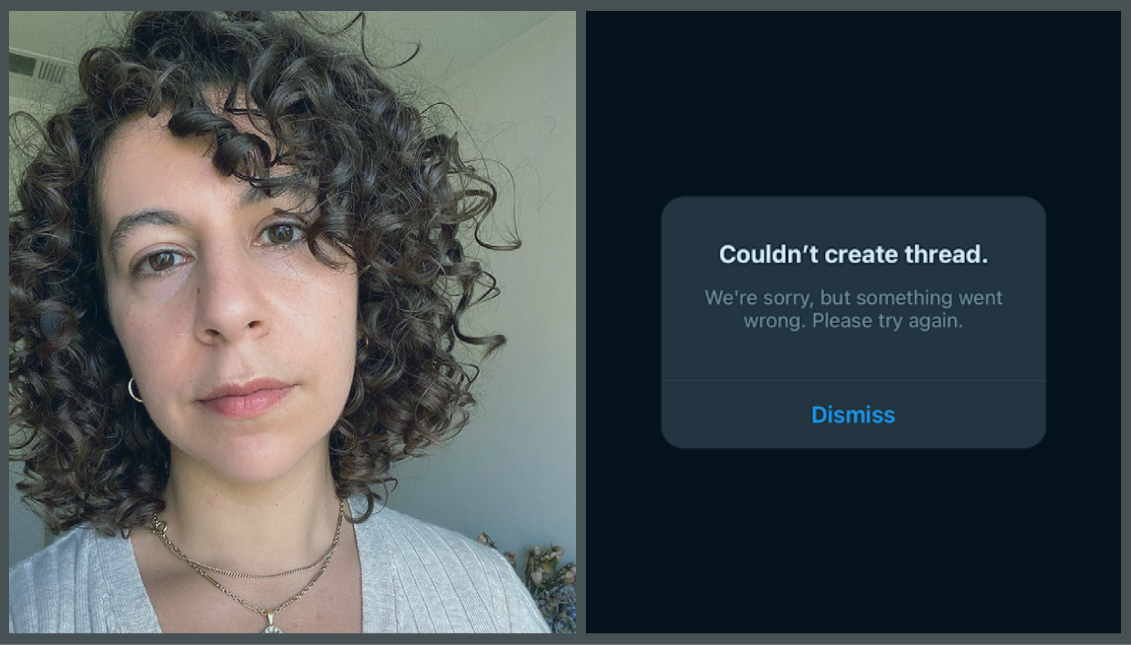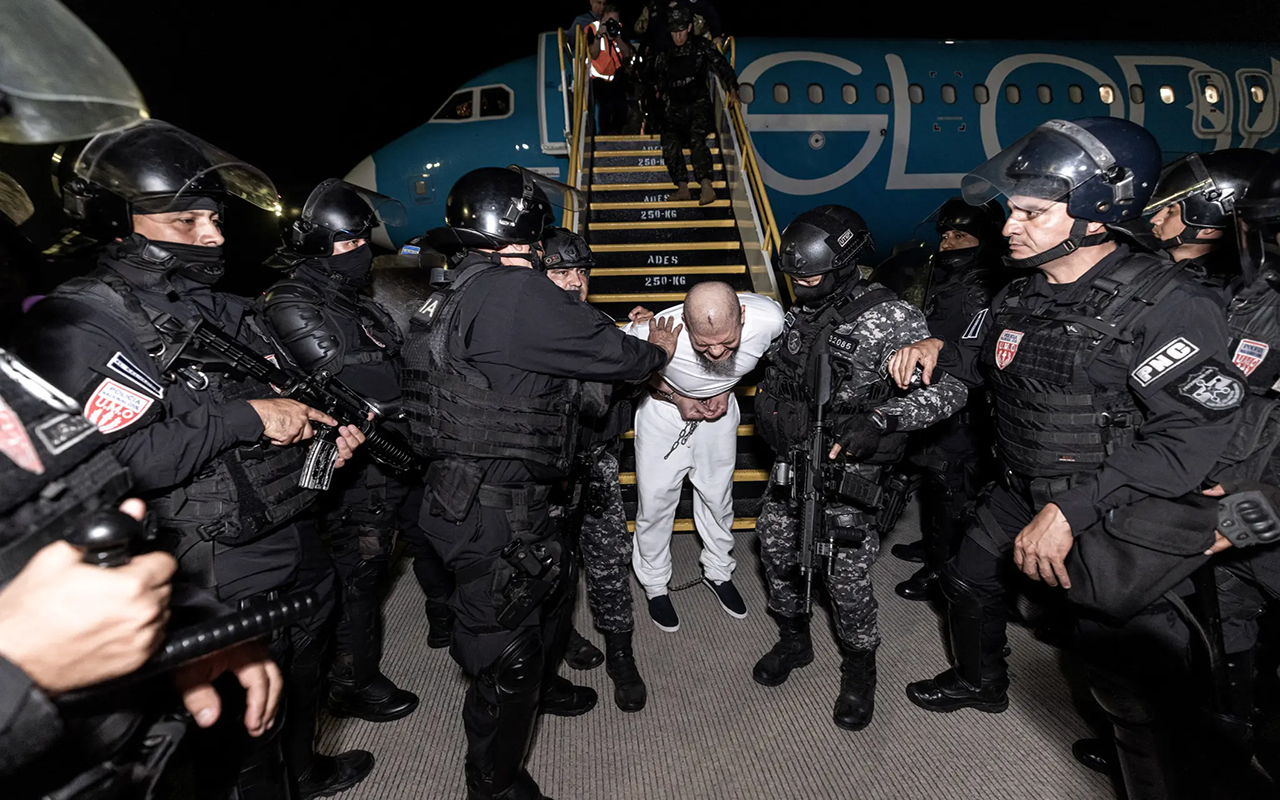
Social media erasure hits creators on Instagram advocating for Palestine
Photographer and producer Lena Abujbara spoke to AL DÍA about her experience on the platform ever since she started spreading posts about the current situation.
In the United States, we are fortunate to have been granted the right to speak our mind freely and openly, thanks to the First Amendment.
This amendment also allows us to express our religion, to peacefully assemble, to petition the government for a redress of grievances, and it protects the freedom of the press.
This freedom of expression is often taken for granted, until it is threatened or flat out taken away from us.
With the 21st century innovation of social media, our freedoms to express our thoughts, feelings, opinions and even criticisms of the government have expanded even more, and allow us to reach a global audience.
But it appears that the First Amendment comes with fine print, written in microscopic font, that only permits certain people to speak up, or certain ideas to be broadcast.
The constitutional right to free speech, and freedom to peacefully assemble and air grievances against the government in a digital space, is being revoked from Americans right before our eyes.
Wednesday, May 5 was designated as a day of awareness for the ongoing epidemic of missing and murdered indigenous women.
Hundreds of Native American content creators — both organizations and individuals — geared up for months to share their stories, and information through social media.
But when they woke up the next morning, they found that their content was blocked, expired and completely deleted from their accounts.
This issue of Instagram censorship is continuing as activists share pro-Palestine content on their feeds amid the current Israeli colonization effort. For many Palestinian-Americans, having their content be blocked and deleted on social media in the midst of one of the largest humanitarian crises of our time, feels like salt in their wounds.
AL DÍA sat down with Lena Abujbara, a 33 year-old Palestinian-American whose Instagram posts on the occupation and ethnic cleansing of her family’s homeland have been blocked and deleted.
Abujbara is a first-generation Palestinian who resides in Orange County, California. Her father’s family comes from Jaffa and her mother’s family comes from Haifa. Her father lived through the occupation for a few years before his family moved to Lebanon, but because his parents worked for the UN, they were also subject to missiles and terrorism.
Given this history and the intergenerational trauma that accompanies it, Abujbara is furious about this censorship of her carefully curated and personal posts about the human rights violations in Palestine.
“The way that social media works in general is that anything that’s going on in the world in politics or entertainment...it has, I think, a three day life span of people remembering. And then if you keep it going, you only keep people’s attention for about a week,” she explained.
She admitted she didn’t have a lot of followers, at a little over 2,000. Before her posts in support of Palestine, her posts reached up to 15% of her audience. Now, it’s at 2%.
isr*el RELIES on censorship, meaning that any and all sharing on social media raises awareness that mainstream media does not and puts pressure on isr*el. (via @/palestine on instagram) #freepalastine pic.twitter.com/MUdFEgYkag
— ًaashna | sour era (@scarletgang) May 14, 2021
Abujbara would post something as basic as a photo of her cat taking a nap and would receive “well over” three hundred views, but her Palestine posts were barely getting 60 to 90 views per day.
She went on to speak bout the correlations between the ongoing settler colonialism occurring in Palestine and history of genocide and displacement of Native Americans that happened on American soil.
For some Americans, the mere act of speaking out against the atrocities in Palestine, would mean having to face the shameful past of their own country.
“It’s what this country was built on. Even as I say, I live in Orange County, I really need to be stating what the land that Orange County was built on was. I’m not surprised this is happening to my people, because I clearly accepted it when I came here, even though I was born here. So in that regard, I understand the ignorance that comes with this issue. But silencing people… that is just not acceptable,” Abujbara said.
In addition to the censoring, she also first noticed last Thursday, May 13, that her IG posts and stories were getting deleted.
“I would click on a story, and just one of them would show up, but there were really much more,” said Abujbara.
Unsure of what was really happening, she tried messing with her algorithm by posting a video of herself playing with her cat, and the video received 160 views.
“Instagram, is this better for your algorithm?” read the caption.
Since then, Abujbara has been posting some family photos and statistics about what’s been going on in the Palestinian-Israeli region, and many of the posts initially wouldn’t publish. She was also blocked from even seeing them on her page, and said got logged out of her account a few times.
My interview with @ajplus on the flagrant and ongoing censorship of Palestinian content by social media companies #Palestine pic.twitter.com/x9oixV3FNl
— Marwa Fatafta #SaveSheikhJarrah (@marwasf) May 15, 2021
The posts getting deleted were the ones using the hashtags with key words and phrases, such as “apartheid” and “free Palestine.”
RELATED CONTENT
It didn’t stop the raising of awareness about the oppression of Palestine, but those with viral posts adapted their language and strategies so they didn’t get flagged.
In one example, people use asterisks to replace certain letters of words, like “Isr*el and P*lestine,” so their followers know what is being said, and the posts are less likely to be censored.
Recently, there have been massive pro-Palestine demonstrations in shows of solidarity all over the world, including Syria, France, England, Japan, Spain, Mexico, Canada and Ireland.
This global response is largely due to the information being spread like wildfire on social media.
Activists on Twitter have been insisting that everyone’s voice matters, and simply retweeting information, donation requests, videos and photos is helping the movement.
People don’t realise how important retweeting & spreading Palestine on social media is, the western media’s coverage of events are bias and in favour of Israel, the only way people are finding out what is happening is video evidence & live tweets from people in Gaza being spread
— Noor (@NoorAbdelHaq1) May 14, 2021
For Palestinians living the oppression, it is the only form of communication they have to fight for their rights, and it’s becoming increasingly clear that the Israeli military wants to cut off Palestinians from the rest of the world.
On Saturday, May 15, an Israeli air strike demolished the Al Jazeera and The Associated Press offices, directly attacking journalists and a vital form of international communication.
Just as accounts and posts spreading solidarity with Palestine have been censored, there’s a sinister censorship that comes with the total destruction of news offices reporting out of Gaza. The defense minister’s desire for “complete quiet” in Gaza bears double meaning here
— Zoé (@ztsamudzi) May 15, 2021
While Abujbara is not sure of the scale that this censorship has been occurring, she does know that it’s been happening to hundreds of activists.
So far, Instagram has not truly offered up an explanation or apology for this issue, but activists like Abujbara deserve to know that they are free and safe to post.
Abujbara shared some personal experiences that highlight the oppression that Palestinian-Americans face on a daily basis, and truly demonstrate the insidious nature of this digital erasure.
She works in photography and post-production, and in 2014, she starting speaking up on Facebook about the Israeli military bombing Palestinian hospitals and schools. A few of her clients commented on her post with classic gas-lighting techniques, in attempts to silence her.
Then these same clients, who have previously paid her for work, refused to compensate her for the services once she started being vocal about Palestine on her Facebook page.
Facebook censors & silences Palestine, deleting & closing Pal posts/accounts, while no measures for systematic Israeli incitement. Today I held an emergency meeting with FB director of Public Policy, Ebele Okobi, to deliver official complaint/request immediate end to censorship! pic.twitter.com/73l7COxDoh
— Husam Zomlot (@hzomlot) May 14, 2021
When Abujbara was around 7 or 8 years old, she remembers being in a store with her mom and sister, when a group of Orthodox Jewish people walked in. Her mother, immediately trembling with fear, pulled her daughters into a corner and stood in front of them, demanding that they “do not say a word in Arabic.”
This experience led a young Abujbara to believe that Jewish people are to be feared and avoided, but it wasn’t until she got older that she realized the trauma that her mother experienced is not indicative of Judaism itself, but of the wrongdoings of the Israeli military and its regime.
Abujbara stands by the fact that Jewish and Palestinian people in the U.S. can and already do have strong bonds of solidarity and stand against war crimes. She spoke of several Jewish friends that she’s had open conversations with about these issues.
To end, Abujbara believes that social media is an excellent way to continue these important conversations, inform people about the truth, create unity and take bigger steps towards a free Palestinian nation.










LEAVE A COMMENT: